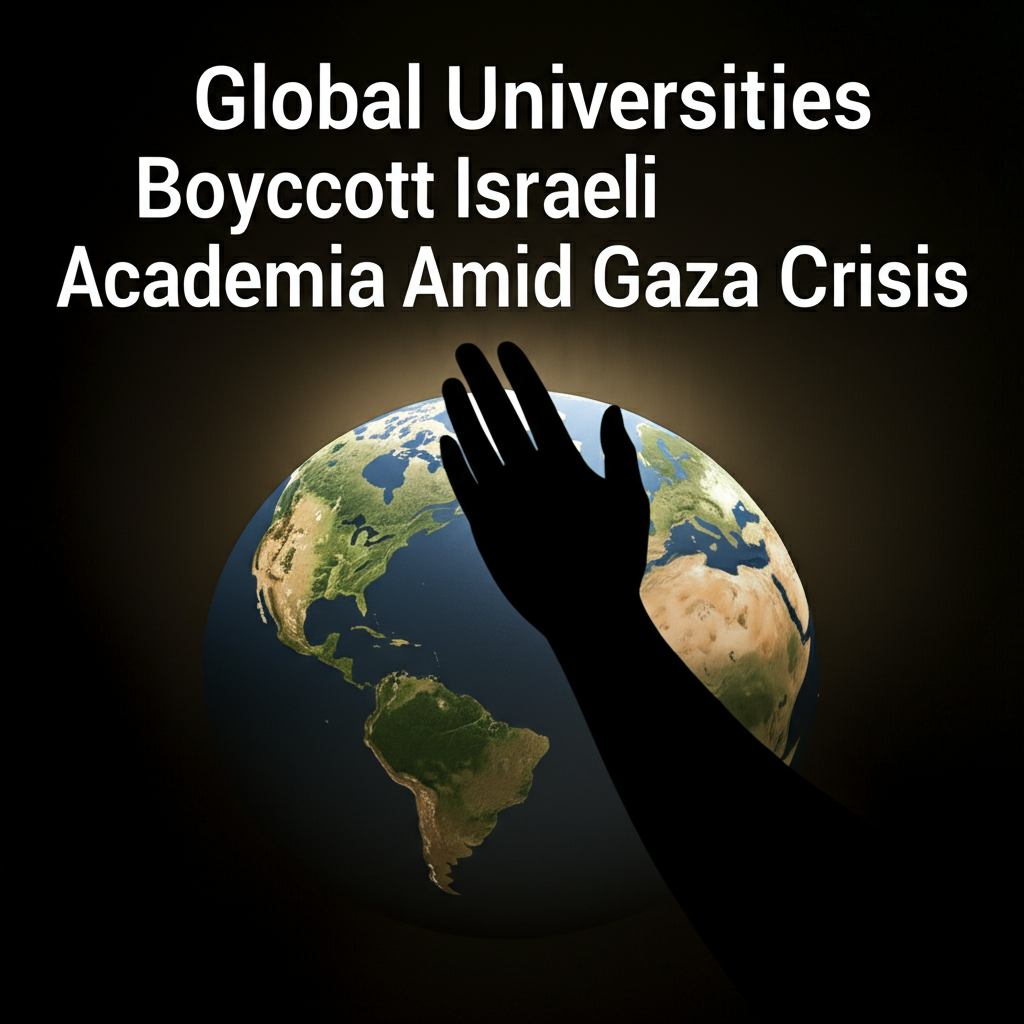Universities Worldwide Boycott Israeli Academia Over Gaza Crisis

The global academic community is experiencing a significant shift as universities worldwide increasingly implement boycotts of Israeli academic institutions in response to the ongoing crisis in Gaza
Background
The boycotts, often framed as expressions of solidarity with Palestinians and protests against Israeli policies, are raising complex questions about academic freedom, political expression, and the role of universities in international conflicts
At the heart of the issue is the Boycott, Divestment, and Sanctions (BDS) movement, a global campaign advocating for various forms of boycott against Israel until it complies with what the movement describes as international law and Palestinian rights
The BDS movement has gained considerable traction in academic circles, leading to resolutions passed by student governments and faculty associations calling for boycotts of Israeli universities and research institutions
These resolutions typically cite concerns about human rights violations, the occupation of Palestinian territories, and restrictions on academic freedom for Palestinian scholars
The specific forms of boycotts vary
Some universities have suspended exchange programs with Israeli institutions. Others have refused to collaborate on research projects or participate in conferences held in Israel.
Individual academics have also pledged not to publish in Israeli journals or collaborate with Israeli researchers.
The rationale behind these actions is that Israeli academic institutions are complicit in the Israeli government's policies and benefit from the occupation
However, these boycotts have generated considerable controversy. Critics argue that they violate academic freedom and unfairly target Israeli scholars.
They contend that boycotts stifle intellectual exchange and punish individuals for the actions of their government.
Organizations like the Anti-Defamation League (ADL) have condemned the boycotts as anti-Semitic and discriminatory
“Academic boycotts are a blunt instrument that harms the very principles of free inquiry and open dialogue that universities are supposed to uphold,” said Jonathan Greenblatt, CEO of the ADL, in a recent statement. “They create a chilling effect on academic discourse and undermine the pursuit of knowledge.
” Proponents of the boycotts, on the other hand, maintain that they are a legitimate form of protest against injustice.
They argue that academic freedom should not be used as a shield to protect institutions that are complicit in human rights abuses
They point to the historical precedent of academic boycotts against apartheid South Africa as a successful example of using academic pressure to bring about political change. “The academic boycott is a tool of solidarity with Palestinian academics and students who face systemic discrimination and restrictions on their academic freedom,” said Nadia Abu El-Haj, a professor at Barnard College and a supporter of the boycott.
“It is a way to hold Israeli institutions accountable for their role in perpetuating the occupation. ” The impact of the boycotts on Israeli academic institutions is difficult to quantify.
Some universities have reported a decline in international collaborations and a loss of prestige. Others maintain that the boycotts have had little effect.
However, the symbolic impact of the boycotts is undeniable.
They have put pressure on Israeli institutions to address concerns about human rights and academic freedom, and they have raised awareness of the Palestinian cause on university campuses around the world
The future of the academic boycott movement remains uncertain. While some universities have resisted calls for boycotts, others have embraced them.
The debate over academic freedom and political expression is likely to continue, and the boycotts are likely to remain a contentious issue in the global academic community
As the crisis in Gaza continues, the pressure on universities to take a stand will only intensify
This complex situation highlights the increasing intersection of academia, politics, and human rights on a global scale, challenging universities to navigate these complex dynamics responsibly and ethically
